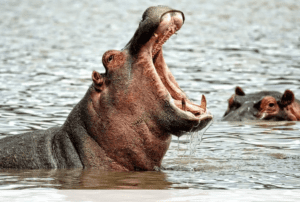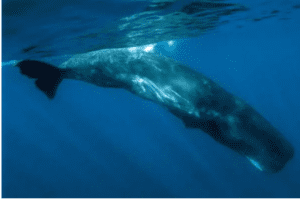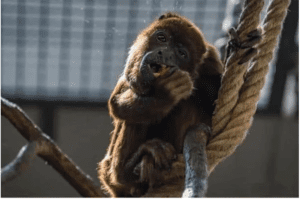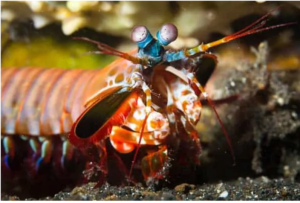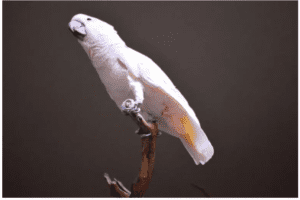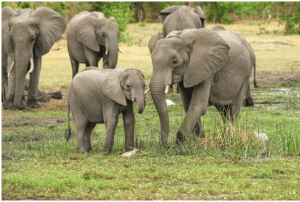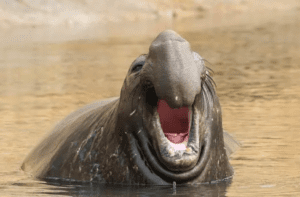Hello, Welcome to Haimi World, Friends, In this blog I will tell you about 8 Loudest Animals on the Planet. The animal kingdom is full of amazing creatures with unique abilities, and some of them are known for their incredibly loud calls and vocalizations. These animals use their loud sounds for various purposes, including communication, attracting mates, and defending their territory. Here are the 8 Loudest Animals on the Planet.
One of the loudest animals on the planet is the blue whale, which produces sounds that can reach up to 188 decibels. These sounds can travel for thousands of miles in the ocean and are used for communication and mating.
Another loud animal is the howler monkey, which is known for its distinctive and incredibly loud howl. Their howls can reach up to 140 decibels, making them one of the loudest animals in the jungle. See the 8 Loudest Animals on the Planet.
Following are the 8 Loudest Animals on the Planet
1. SPERM WHALE-
The title of the loudest animal in the world goes to the sperm whale, which can produce clicking sounds of up to 233 decibels. Not only is this the loudest animal, but it also has the largest brain of any animal on this earth.
2. HOWLER MONKEY-
The male howler monkey uses its loud screams, which can reach up to 140 decibels, for various communications, including to warn other howler monkeys of a potential threat and to attack females.
3. MANTIS SHRIMP-
Mantis shrimp are colorful creatures that live in temperate and tropical seas. These small animals have the ability to create a sound that can reach up to 200 decibels. They use this loud sound to scare their prey, which allows them to move in and catch the prey.
4. MOLUCCAN COCKATOO-
This bird has a loud scream that can reach up to 129 decibels, which is almost the same amount of decibels that a 747 jet produces. Moluccan cockatoos scream to alert their flock of potential danger,in morning and night calling ritual that can last up to 20 minutes.
5. AFRICAN ELEPHANT-
African elephants have the capability to produce a sound that reaches up to 117 decibels, and this sound can be heard up to a six mile radius. The elephants use these sounds to signal different emotions, including danger and anger.
6. NORTHERN ELEPHANT SEAL-
The females and young pups of the species also make loud sounds but they don’t generally reach the same decibel level as the males.
7. NORTH AMERICAN BULLFROG-
Despite its smaller stature, the North American bullfrog can make a sound that reaches up to 119 decibels. They make this sound with their mouths open, and it is essentially a distress scream.
8. AFRICAN CICADA-
A large genus with over 3,600 species and more are regularly being discovered all the time. No matter what the species, all of the African cicadas have a loud ear-piercing sound.
Other animals known for their loud calls include the lion, which can roar up to 114 decibels, and the African elephant, which can communicate with other elephants using low-frequency sounds that are too low for humans to hear. While these animals are incredibly loud, it is important to remember that their vocalizations play an essential role in their survival and communication with others in their species. ( 8 Loudest Animals on the Planet ).
Conclusion:
In conclusion, the animal kingdom is home to some incredibly loud creatures that use their vocalizations for various purposes, including communication, mating, and territorial defense. From the blue whale to the howler monkey, these animals produce sounds that can reach up to 188 decibels, which is louder than a jet engine. While these animals may seem disruptive to our ears, it is essential to remember that their loud calls play a vital role in their survival and communication within their species.
FAQ
Q: What is the loudest animal on the planet?
A: The blue whale is considered to be the loudest animal on the planet, producing sounds that can reach up to 188 decibels.
Q: Why do animals use loud vocalizations?
A: Animals use loud vocalizations for various purposes, including communication, attracting mates, and defending their territory.
Q: Can loud animal vocalizations cause damage to human hearing?
A: Yes, loud animal vocalizations can cause damage to human hearing if the sound is too intense or prolonged. It is important to protect your ears when exposed to loud noises, whether from animals or human-made sources.
Q: How do animals produce loud sounds?
A: Animals produce loud sounds through various methods, including the vibration of vocal cords or membranes, the amplification of sound waves through specialized structures, and the rapid movement of air or water.
Q: Why is it important to protect animals that use loud vocalizations?
A: It is important to protect animals that use loud vocalizations because their vocalizations play a vital role in their survival and communication within their species. Additionally, these animals are often keystone species that contribute to the health and balance of their ecosystems.

